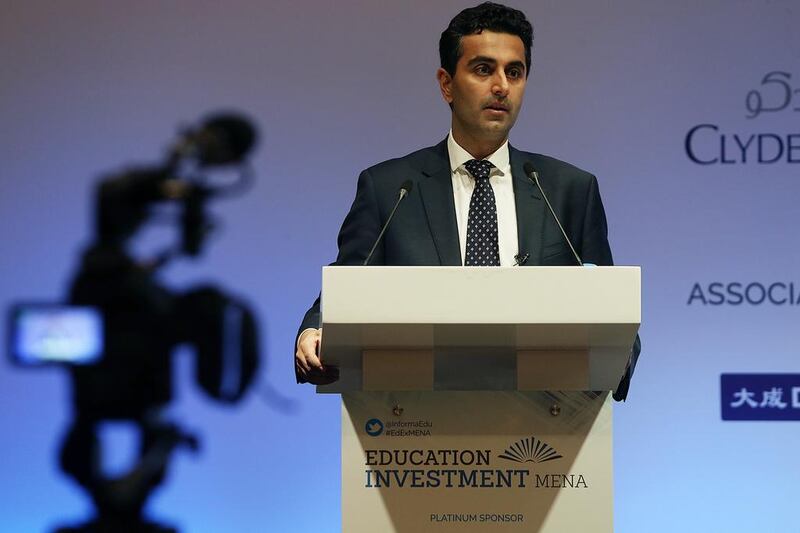DUBAI // The country’s Chinese community is an untapped source for investors looking to support private education, a conference heard on Tuesday.
Despite there being more than 250,000 Chinese expatriates living and working in the UAE, there are no schools dedicated to providing an education tailored to meet their needs.
Ashwin Assomull, managing director of Parthenon-EY, a strategy consultancy, believes the future of the private education sector in the UAE is prosperous but investors must focus on gaps in the market.
“The market [private international kindergarten to year 12 schools] is US$1.5 billion [Dh5.51bn] in Dubai and we are seeing growth rates between 5 and 15 per cent a year,” he told delegates at the Education Exchange conference at the Conrad Hotel.
“Although you can never be certain, everything points to the fact that there is a gap in providing education for the emirate’s Chinese community.
“We have British, Indian and Japanese schools but nothing for the Chinese – that is something investors could look at.”
The UAE, and Dubai in particular, are an attractive location for investors because it is safe and has high quality infrastructure and demand for international education.
“There was a time when demand was outstripping supply but the KHDA [Knowledge and Human Development Authority] has worked extensively on improving supply and on quality,” Mr Assomull said.
It was important for investors to do their research and understand the market’s requirements, he said.
“Many of the new schools that opened recently are doing very well despite the increased competition. Higher education institutes should also be more active in trying to attract some of the about two million international students attending western universities,” Mr Assomull said.
“Many of these students, whether they be Chinese, Indian or from elsewhere, go to British, American or Australian universities.”
“However, whenever there is a change in visa requirements, such as in the aftermath of 9/11, these students look elsewhere and the UAE should be among their potential destinations.”
Natasha Ridge, the executive director of the Al Qasimi Foundation, said there was a definite need for Mandarin to be taught in schools.
“There would need to be more research done on how many school-age Chinese children there are in the UAE and whether a school would be feasible,” she said. “Many of the Chinese workers are low income and those who are here on higher salaries may not want to send their children to a Chinese-curriculum school.
“Most prefer to send their children to international schools because they want their children to attend universities in the West.”
Ralph Tabberer, chief executive of BBD Education, said the global education industry was worth $7 trillion, second only to health. “At the heart of that is Dubai, Abu Dhabi and Qatar, which are investing in education more than India and China combined,” he said.
Greater competition among schools in Dubai has also led to marketing budgets being doubled, with one school increasing it by five times as they try to attract more pupils.
“Many schools in Dubai are rated ‘Good’ and now we’re seeing a growth in niche schools that offer something new and innovative,” Mr Tabberer said.
Kalthoom Al Balooshi, director of institutional development at KHDA, said the regulator was keen to work with investors and other parties.
“As the regulatory body, the KHDA attends events such as EdEx to contribute to the platform where investors, operators, individuals, corporates and companies can interact in a transparent way,” she said.
“This will help them better contribute to the education landscape in Dubai.”
nhanif@thenational.ae






